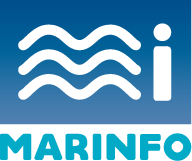Project
MarInfo aims at the implementation of an Integrated Platform for Marine Data Acquisition and Analysis.
The project joins CIBIO/InBio (Associated Laboratory), CIIMAR (Associated Laboratory), SYSTEC and LSTS (Faculty of Engineering UP), institutions with a strong background on marine research, in a collaborative network to collect, mobilize, store, synthesize, and ultimately provide physical (e.g oceanographic, edaphoclimatic) and biological data (e.g. genomic, ecosystem, diversity) gathered from the marine environment.
The MarInfo platform is interdisciplinary, involving a technological push driven by engineering experts in computation and automation, and an application pull driven by oceanographers and marine biologists.
Current research on oceanography and marine biology demands and generates large volumes of information that cannot be gathered or handled by traditional means. Novel technologies are increasingly becoming key factors for the successful completion of many hypothesis-driven research projects.
The MarInfo platform comprises two distinct, but complementary, research lines.
The first line focuses on the development of technology to ease the acquisition of data in the marine environment. It integrates observation and communication technologies to assess specific information such as physical/environmental data or species diversity and behaviour, considering the particular regional ocean conditions and dynamics.
Autonomous vehicles are used to overcome limitations to a sustained (systematic) collection of data in the vast and harsh marine environment, and cheap miniaturized loggers will be developed and deployed, either at fixed sites or attached to large marine animals, to obtain information on several physical parameters of interest.
The second line focuses on the integration of a large volume of data already available and newly acquired physical, chemical and biological information into a cohesive framework, and the development of pilot case studies.
Oceanographic data collected from multiple sources (fixed buoys, autonomous vehicles, large predators, network of benthic sensors) are coupled with remotely-sensed data and fed into regional oceanographic models. This will allow reliable forecasting of climate-induced environmental changes and assessment of regional dynamics and events (e.g. the upwelling system off NW Iberia).
Novel tools are designed and implemented to generate cost effective biological diversity datasets, using metabarcoding analysis based on NGS technology, and energetics and trophodynamics datasets to integrate knowledge at the ecosystems level.
The type of data acquired, and the derived information, allow a deeper understanding of the mechanisms coupling oceanographic and biogeochemical processes, unraveling interactions between them, and will therefore support the decisions for a sustained use of marine resources while enhancing their economic potential.
